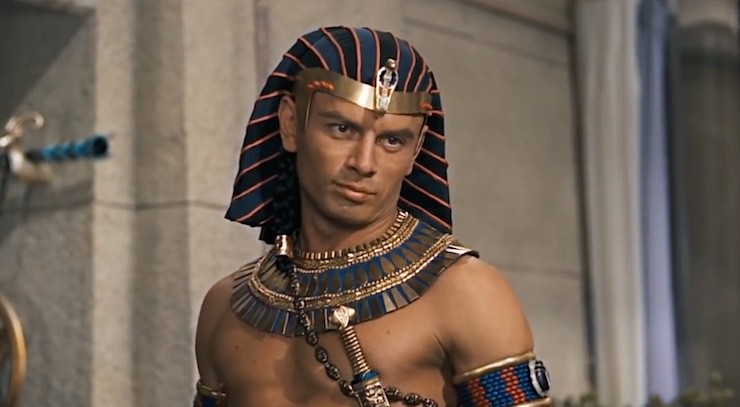Amongst the sands of Egypt stands the Great Pyramid of Giza, a monument to the architectural and artistic achievements of the Egyptian Empire, and a sight that withstands the enraptured gazes of generations of humanity. Even though the religion that birthed it is long dead, the Great Pyramid still exudes a holy sanctity that defies the countless wars fought in its shadow. Barring the endless drift of Voyager I, the Great Pyramid, built under the auspices of Pharaoh Khufu, is the closest our species has yet come to creating something that preserves our vast imagination across the eras.
But man, did Khufu’s dad build some goofy pyramids before that.
Tumblr user Bitey Mad Lady clarifies this weird little pocket of Egyptian history in a hilarious (and educational!) post about the pyramids of King Sneferu.
When King Sneferu came to the throne of Egypt, the cool thing that all the pharaohs had was a Step Pyramid, like the original one built by King Djoser and designed by Imhotep (not the mummy). King Sneferu could easily have had one one because his predecessor King Huni had died before his could be finished. All Sneferu had to do was step in and put the last few blocks on.
And thus Pharaoh Sneferu begins a life lived to the utmost of ridiculousness: striving for grandeur while refusing to listen to the people (his architects and advisors) who knew how to achieve such grandeur.
But King Sneferu had a vision. He didn’t want any old Step Pyramid. He was going to build Egypt’s first smooth-sided pyramid, and make King Huni’s pyramid way taller in the bargain. It didn’t work. The core of Huni’s pyramid couldn’t handle the modifications and nowadays the Step Pyramid at Meidum looks like this:

It’s not on a hill – that’s the outer layers of the pyramid that have fallen down all around it. The name of the structure in Arabic is Heram el-Kaddaab, which means something like The Sort-Of Pyramid.
The shenanigans don’t stop there. Bitey Mad Lady takes readers on a tour through all of Sneferu’s pyramid-building, resource-wasting activity, leading up to the pyramid that he was eventually buried within. It’s a great way to learn about a slice of Egyptian history that’s still visible in the present day. You can read on here.
It’s also kind of inspiring, in a backwards way. Sneferu’s ambition produced some of the ugliest monuments in history, but once he died, Egyptian architects vented their frustration by building something that actually worked, i.e. the Great Pyramid of Giza. Maybe someday my own ambitions will make someone so angry that they’ll create a piece of timeless perfection!
One can only dream. And fail on a massive scale repeatedly.










